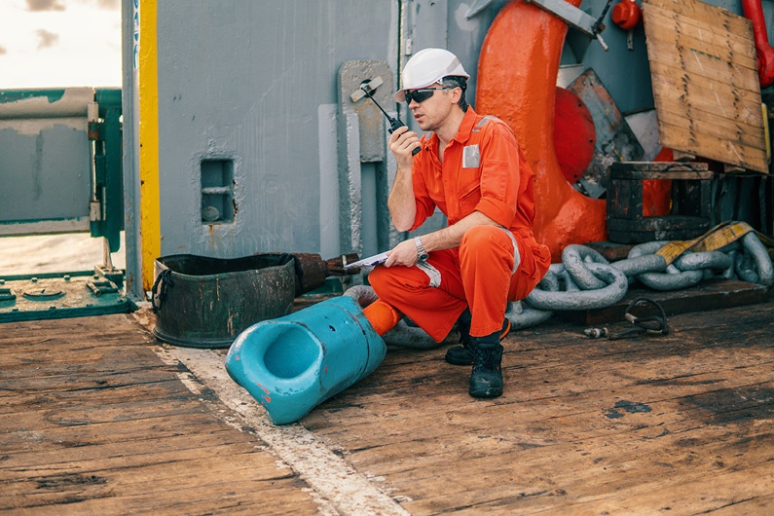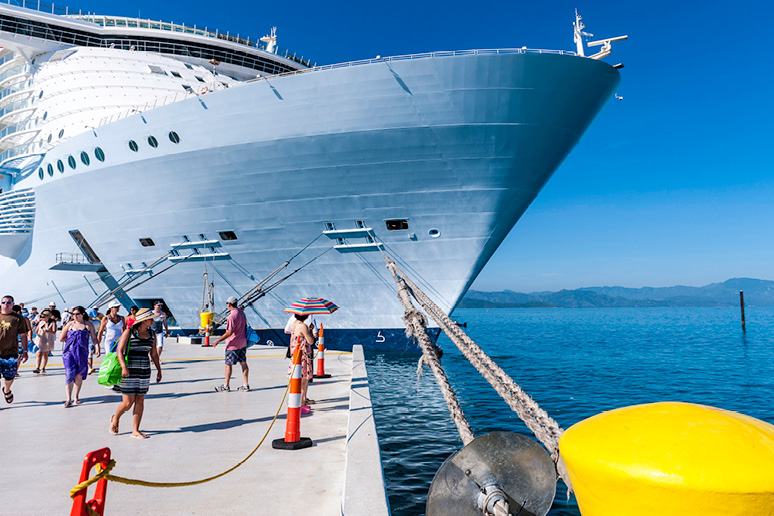The U.S. has a thriving maritime industry. The country utilizes many large ports, including in Los Angeles, Seattle, New York, New Jersey, Savanna, Virginia, and Houston—just to name a few. Large and small vessels go in and out of these industrial centers day and night with the help of thousands of workers. These workers, whether they are on board the ships or at the port, face a significant risk of injuries. Other portions of the maritime industry are cruise ships and ferries. Crew members and passengers who are injured while enjoying a cruise, shore excursion, or ferry also need to work with an experienced maritime lawyer to understand their legal rights and options.
Common accidents that cause maritime workers harm
Seamen, longshoremen, dock workers, other port employees, offshore workers, and commercial fisherman face injuries and fatalities due to:
- Falling objects
- Crane accidents
- Loading/unloading accidents
- Moving vehicle accidents
- Slips and falls
- Falls from heights
- Falls into water/falls overboard
- Drowning
- Exposure to hazardous substances/chemical burns
- Fires or explosions
- Exposure to electrical hazards/electrocution
- Mooring line accidents
- Vessel collisions
- Hot work accidents
Causes of common work-related maritime accidents
Maritime workers face a high risk of accidents because of the strenuous and unpredictable nature of their work. Despite weather reports, there is no predicting what the environment will do on any given day. Because of these inherent risks, all maritime workers need to be well trained and supervised, and all equipment must be in good working order.
Employees work on or around large vessels, which must be navigated with care. One small slip up and a serious collision. Navigation errors, which can arise due to poor training, worker negligence or recklessness, or system failures, are a common cause of incidents that lead to injuries and fatalities.
Many accidents occur because of inadequate training, inadequate staffing, and poor supervision. Seamen and port workers should be trained how to use equipment properly and how to perform tasks in the safest manner possible. Poor training leads workers to complete tasks dangerously, despite their best intentions.
No matter how well trained maritime workers are, there still need to be enough men and women on duty to complete tasks safely. When there are too few workers for any given task, the remaining workers are put at risk.
Accidents within the maritime industry also may occur because of improperly inspected and maintained equipment, a lack of appropriate equipment, unsecured equipment, and a lack of training for how to properly handle and use equipment.
Within each maritime business, there must be workers responsible for maintaining equipment and personal protective gear. If no one is assigned to these tasks, or those assigned are negligent in inspecting and repairing equipment, then necessary tools may be defective and hazardous.
Additionally, a worker’s fatigue or drug- or alcohol-related impairment can cause a serious incident.
Laws applicable to maritime workers’ injuries and fatalities
Maritime workers who are injured while on duty have a right to compensation and other benefits, which may vary depending on their position and where they were working at the time, they sustained the injury. Typically, these workers are not covered by their state’s workers’ compensation laws, which is why it is best to consult a maritime attorney and not a personal injury or workers’ comp lawyer.
Regardless of how injuries are sustained, a maritime worker is entitled to maintenance and cure, which cover medical and daily living expenses.
Offshore workers who are injured while working are protected by the Jones Act (the Merchant Marine Act of 1920). The Jones Act allows injured workers or surviving family members to pursue compensation if the seaman’s employee was in any way negligent, and this negligence led to the workers injury or death. Longshoreman and harbor workers are not covered by the Jones Act. Instead, they may pursue compensation under the Longshore and Harbor Workers’ Compensation Act, as well as medical care and vocational rehabilitation services.
The Death on the High Seas Act allows surviving family members to pursue funeral expenses, lost financial support, counseling expenses, and other costs after losing a loved one in a fatal accident beyond U.S. territorial waters.
Cruise ship accidents
According to the Cruise Lines International Association (CLIA), in 2018, there were 14 significant operational incidents worldwide, which led to two fatalities among the passengers and crew and two injuries. These incidents may include fires, technical issues, stranding or grounding, storms, collisions, and other incidents. Separately, there were 23 man overboard incidents in 2018 around the world. Five individuals were rescued and there were 19 fatalities, 13 of which were passengers and six were crew members.
These statistics look at limited, specific situations. Many cruise ship passengers and crew members suffer injuries and fatalities incidents not accounted for by CLIA. Common causes of injuries on cruise ships include:
- Slip and falls
- Falls from heights
- Struck by objects
- Assault and battery
- Sexual assault and rape
Cruise ship passengers’ right to compensation
Cruise ship passengers injured onboard a ship should discuss their legal options with a maritime lawyer. The law applicable to their situation may be a federal maritime or admiralty law, and they may face a more complicated personal injury or wrongful death claim.
No matter the specific law that applies to a passengers’ injuries, if the cruise line or another party is at fault, they may have the right to pursue compensation for medical expenses, lost wages and reduced earning potential, pain and suffering, emotional distress, disfigurement, and disability.
The law related to a cruise ship passenger’s death may change. In April 2019, Senator Deb Fisher (R-Neb) introduced a bill to amend the Death on the High Seas Act to provide for pain and suffering and emotional losses of surviving family members. Currently, the law allows for only financial losses, such as funeral and burial expenses or lost income.
 By Victoria Langley,
By Victoria Langley, 

